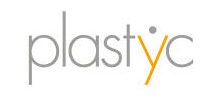 Earlier this week, the folks at Plastyc, Inc., released a public application programming interface (aka an “API”) for interacting with the Plastyc platform that issues and maintains the UPside Visa prepaid card line of prepaid debit cards. We’ve reviewed the API, and have a few thoughts about how the API can be used, and why it’s a significant development for the prepaid debit card industry.
Earlier this week, the folks at Plastyc, Inc., released a public application programming interface (aka an “API”) for interacting with the Plastyc platform that issues and maintains the UPside Visa prepaid card line of prepaid debit cards. We’ve reviewed the API, and have a few thoughts about how the API can be used, and why it’s a significant development for the prepaid debit card industry.
An “API” is simply a programming interface that allows remote computers to talk to each other. The API produced by Plastyc, Inc. allows developers and innovative businesses to interact with Plastyc’s issuing and account management systems. The API provides functions that allow businesses to:
- Create and host their own prepaid debit card enrollment process (with their own enrollment forms), that results in the issuance of an UPside prepaid Visa card by Plastyc.
- Retrieve data about cardholders who have enrolled through the hosted enrollment process.
- Retrieve cardholder information and account information (including balance and transaction information).
- And (our favorite), allow cardholders to perform account-related functions including sending funds to other individuals.
(you can view the full API and functions at Plastyc’s website)
So why is the prepaid debit card API from Plastyc, Inc. so interesting?
Simple. It allows other companies and innovators to build applications, tools and systems that allow consumers to open prepaid accounts and use those accounts. More consumers and more usage means a “win” for Plastyc.
Currently, consumers sign up for and interact with prepaid card issuers and ISOs over the Internet by being forced through a single funnel or point of interaction – the sign up form created by the issuer or ISO. Consumers are driven to the sign up form for the purpose of applying for a prepaid card and to set up an account. The process requires that a consumer: (1) know that they want or need a prepaid card, and (2) that a consumer get to the sign up form (and not get distracted by the dozens of different forms and cards available).
An API lets innovative companies bring the form or the interaction to the consumer. Examples given by Plastyc in their press release show some examples that illustrate this approach. Here’s one example given by Plastyc:
In a multi-state trial, cab drivers in D.C., Illinois and Louisiana are receiving their portion of riders’ credit card payments directly in their UPside Visa accounts. The drivers signed up for the card via Dialie taxicab payment system that uses the Plastyc API. Credit card payments go directly to the cab company which pushes the drivers’ portion directly to their cards. The drivers can check their balances by swiping their UPside Visa card in the cab’s card reader or by calling Dialie’s phone bank.
With the deployment of credit card terminals in taxis nationwide, cab drivers who were used to receiving cash from their customers can now receive their money directly onto an UPside Visa card. This alleviates their fears of losing convenience or speed when taking riders who pay by credit card rather than cash.
Patrice Peyret, CEO of Plastyc, Inc., explained the release of the API by saying:
Many businesses are faced with customers or members who can’t pay them easily or can’t receive payments from them when needed. The Plastyc API, together with the UPside Visa prepaid card, help businesses solve that problem in a way that is both seamless to their site’s users and respectful of their wallets.
What types of transactions or interactions could benefit from the ability to quickly create an account, and then allow access to the account? The taxi – driver example is a great one, but here are a few others:
- Call Centers
- Mobile applications
- Communities or affinity groups (Zynga, Club Penguin, etc)
- Tax preparation services
- Small businesses (why not issue prepaid cards as part of your payroll process, and do it automatically when onboarding a new employee?)
- Independent contractors, and consultants (pay, and get paid more quickly)
- Online shopping
- Tons of others (if you think of some good ones, contact us, and we’ll help you spec it out!)
We hope that other prepaid companies follow Plastyc’s lead and expose their account creation and usage processes with secure and well-defined APIs.
Comments are closed